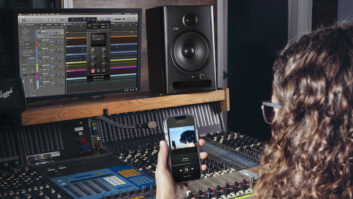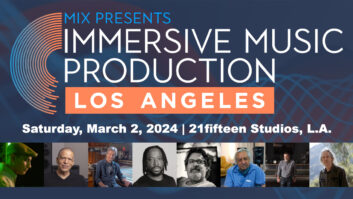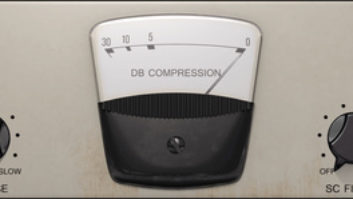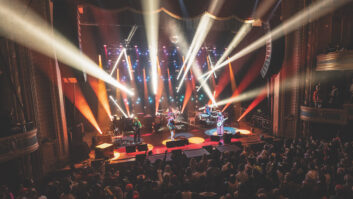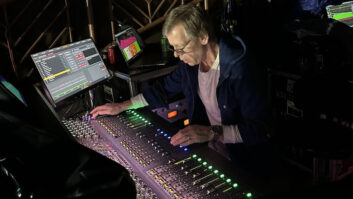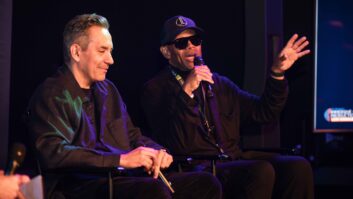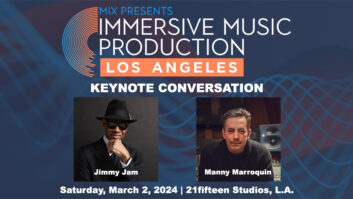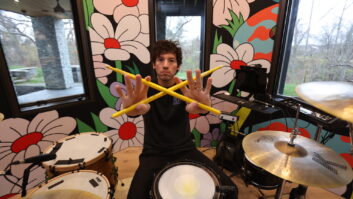Los Angeles, CA – January 2018… When you tune in to The Grammy Awards on January 28th, keep an eye out for Ryan Freeland, who’s nominated in the Best Engineered Album, Non-Classical category for his gorgeous recording of Canadian singer/songwriter Rose Cousins’ haunting, profound Natural Conclusion.
Freeland, who earned Grammys for his work with Bonnie Raitt, Ray LaMontagne, Ramblin’ Jack Elliott, and the Carolina Chocolate Drops, has more than 30 years of recording under his belt: His collaboration with producer Joe Henry spans Henry’s critically-acclaimed albums Blood From Stars and Civilians and projects with Joan Baez, Mose Allison, Billy Bragg, Loudon Wainwright III, and Rodney Crowell. Freeland’s other recording credits include The Barr Brothers, Grant-Lee Phillips, Jonatha Brooke, and the past seven Aimee Mann albums.
Freeland’s fascination with the sound of recordings began as a kid in the Midwest, endlessly experimenting with his turntable’s bass and treble knobs; and later, at Michigan’s Interlochen Arts Academy, removing the bed in his dorm room to make space for recording gear. In the early ’90s, he headed out west for a job with iconic engineer Bob Clearmountain, and never looked back.
Today, Freeland works out of his Stampede Origin studio, a custom-built two-story space behind his Culver City home, featuring a large control room, drum recording room, two iso booths, and racks of impressive outboard gear, including the Manley Stereo Variable Mu Limiter Compressor.
He first encountered the Vari Mu analyzing his mixes with mastering engineer Gavin Lurssen. “I was constantly challenging myself, trying to improve my sound, and one of the most obvious ways to do that is with gear—not that it’s simple, but seeing the gear that people are using, and how they’re using it, is part of that process of learning.”
Freeland chose the mastering version of the Vari Mu, which features stepped knobs with Greyhill rotary switches with gold contacts, and a highpass sidechain filter; he also opted for the T-Bar mod, which uses a pair of 6BA6 pentodes wired as single triodes, and sounds smoother at higher compression levels. “I got all of the bells and whistles,” he says, laughing. “If there’s an option available, I’ll get the thing with the option.”
He mostly uses the Vari Mu on his mix bus. His mix chain is set up like a mastering chain: “I kind of combine things in the same way a mastering engineer might, where you put a bright EQ in front of a darker compressor, and the Manley can come in and combine all those variables.”
Freeland is partial to gear that offers vibey tone in the context of his signal chain: “The coloration of the gear, the way it reacts with your other gear, if it can round a transient off in a particular way, hit the 2-bus just a little bit harder; if it’ll just have a little bit of a gooier vibe going back in on the reprint or off the tape, then that’s what I like. Any gear that bills itself as really clean and transparent, there’s no real point for me with that. I need gear that is adding a something to the mix.”
And that’s where, he says, the Manley hits the sweet spot. “It’s got enough vibe and character, and it’s also got a cleanness to where you can hit it harder and it’s not going to sound thumpy. You can still have it control the dynamics without it taking the life out of track. That’s where the magic of the Vari Mu lies.”
In the age of unlimited audio options, Freeland says it’s important to dial in a sound that makes a studio special. “I feel like studios and engineers are supposed to have unique voices,” he says. “I wouldn’t say it’s supposed to be a strong, overpowering voice, because you’re there to serve the artist and the song, but you still have to be emotionally invested in the sound, and the vibe of the sonics that are happening in your studio, and with the gear you’re you’re using.
“Manley makes musical gear that is to that point; they’re giving engineers tools to create really great recordings with vibe and emotion.”
